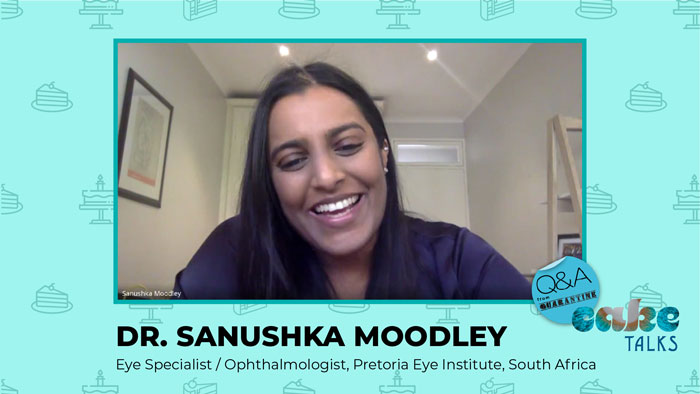The 37th World Ophthalmology Congress (WOC2020 Virtual®), which was meant to take place in Cape Town this year, shone a light on South Africa. And as a medical leader in the region, South Africa is a great place to take the continent’s ophthalmic pulse and find out what’s going on at the ground level. To get solid information, CAKE magazine CEO Matt Young spoke with Dr. Sanushka Moodley, an ophthalmologist based in Pretoria.
Where’s the Leadership?
As with other parts of the world, ophthalmologists in South Africa look to experts for guidance. In this case, much of the leadership comes from the Ophthalmological Society of South Africa (OSSA), which doctors often connect with via a WhatsApp group. Dr. Moodley noted they have provided significant guidance during the COVID-19 outbreak — a confusing time for essentially everyone, when steady leadership is extremely valuable.
Another major player is the African Ophthalmology Council (AOC), based in Lagos, Nigeria, but with a presence all over the continent. The AOC helps sub-Saharan ophthalmologists connect and is working to implement the objectives of the Vision 2020 program put together by the World Health Organization and the International Agency for the Prevention of Blindness. The goal? To prevent any avoidable vision loss and to help maximize the quality of life of those with unavoidable vision loss. With around 15% of the world’s blind living in Africa, it’s a major undertaking.
Africa-Specific Ophthalmology
Dr. Moodley discussed some ophthalmic situations that are perhaps more prevalent in South Africa than other places. These can include ocular problems related to infectious diseases like tuberculosis, syphilis and HIV — all of which can cause a host of secondary conditions. Because of their experience with these conditions, African ophthalmologists may have some valuable information to share with the rest of the world.
Another major issue that troubles sub-Saharan Africa is an apparent genetic predisposition to glaucoma. Dr. Moodley noted that sub-Saharan Africans are six times more likely than people from other parts of the world to develop glaucoma solely because of genetics. Of course, sub-Saharan Africa boasts a huge amount of genetic diversity, but it seems to be a continent-wide issue, with glaucoma causing 15% of blindness in the region. A Nature study — set in Ghana — concluded that the onset of glaucoma is earlier and the prevalence is higher among people of sub-Saharan African descent than those of caucasian origins.
Dr. Moodley also noted that her region faces a huge amount of alcohol-related eye trauma cases from stabbing and accidents, for example. During lockdown — when the South African government banned alcohol sales — there was a significant drop-off in eye trauma cases. When the lockdown was lifted and alcohol sales were greenlit again, cases essentially doubled overnight, she said.
Lessons from the Continent
So, what does South Africa do well that other regions could learn from? A few things, it turns out, including some notably innovative practices. One significant practice is outreach programs for cataract treatments that venture into the less developed parts of the country to treat patients without ready access to medical care. Many of these programs are run by the Bureau for the Prevention of Blindness and often operate on a monthly basis.
Dr. Moodley said that she participates in a program called Flying for Life, a charitable foundation that provides medical care, education, skills training and more to rural populations. In this program, Dr. Moodley flies out to a rural area in the morning, treats 20 or so patients, and flies home in the evening. Flying for Life operates on a daily basis, as opposed to monthly outreach programs. For the rural communities, this can be the difference between vision and blindness, so it’s a truly laudable program.
She mentioned another program run in the northeast of the country that ophthalmologists from all over the world will fly to for volunteer work. One of the major perks? It’s near the safari area, so doctors will be able to combine charity with getting to see some of the coolest nature on the planet.
As with any other part of the world, South Africa’s ophthalmic experience is unique. It provides us an opportunity to learn from what works well there as well as what needs attention. Steady leadership together with competent ophthalmologists like Dr. Moodley paves the way for healthy optimism — and the chance that here, too, vision care gets the respect it deserves.



